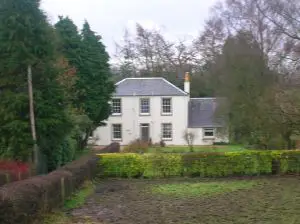Lord John Boyd Orr of Brechin
Sir John Boyd Orr, 1st Baron Boyd-Orr (September 23, 1880 – June 25, 1971) was a Scottish doctor, biologist and politician who received the Nobel Peace Prize for his scientific research into nutrition and his work with the United Nations Food and Agriculture Organization (FAO).
Orr grew up in Kilmaurs, near Kilmarnock, East Ayrshire, Scotland, a rural community where he studied at Kilmarnock Academy, then studying to become a teacher at a teachers' college and the University of Glasgow, where he studied Arts.
After three years of teaching, he returned to the university to study medicine and biology, and after short stints of practice he became a researcher. His first job was as director of a nutrition institute in Aberdeen, which he started from scratch.
During the First World War he served as a military doctor for both the British Army and Royal Navy, firstly in active duty and later as a researcher into military diets.
After the war, he spent another decade at the renamed Rowett Research Institute, for which he demonstrated a talent for raising considerable amounts of money allowing the institute to be considerably expanded. Through the 1920's, his own research was devoted mainly to animal nutrition, his focus changed to human nutrition both as a researcher and an active lobbyist and propagandist for improving people's diets.
Orr, by now Rector of University of Glasgow, was elected as Member of Parliament for the Combined Scottish Universities in a by-election in April 1945 as an independent, and kept his seat at the general election shortly after. He resigned in 1946.
After the Second World War, Boyd Orr resigned from the Rowett Institute, and took several posts, most notably at the FAO, where his comprehensive plans for improving food production and its equitable distribution failed to get the support of Britain and the US. He then resigned from the FAO and became director of a number of companies and proved a canny investor in the stock market, making a considerable personal fortune, such that when he received the Nobel Prize in 1949 he was able to donate the entire amount to organizations devoted to world peace and a united world government. (The American Friends Service Committee was one of his nominators.[1]) He was elevated to the peerage in 1949 as Baron Boyd-Orr.
In 1960 Boyd Orr was elected the first president of the World Academy of Art Science, which was set up by eminent scientists of the day concerned about the potential misuse of scientific discoveries, most especially nuclear weapons.
The University of Glasgow has a building named after John Boyd Orr, and the University's Hunterian Museum holds his Nobel medal.
Notes
ReferencesISBN links support NWE through referral fees
- Kay, H D (Nov 1972). John Boyd Orr. Baron Boyd Orr of Brechin Mearns. 1880-1971. Biographical Memoirs of Fellows of the Royal Society 18: pp43-81. (obituary)
External links
| ||||||||
Credits
New World Encyclopedia writers and editors rewrote and completed the Wikipedia article in accordance with New World Encyclopedia standards. This article abides by terms of the Creative Commons CC-by-sa 3.0 License (CC-by-sa), which may be used and disseminated with proper attribution. Credit is due under the terms of this license that can reference both the New World Encyclopedia contributors and the selfless volunteer contributors of the Wikimedia Foundation. To cite this article click here for a list of acceptable citing formats.The history of earlier contributions by wikipedians is accessible to researchers here:
The history of this article since it was imported to New World Encyclopedia:
Note: Some restrictions may apply to use of individual images which are separately licensed.
